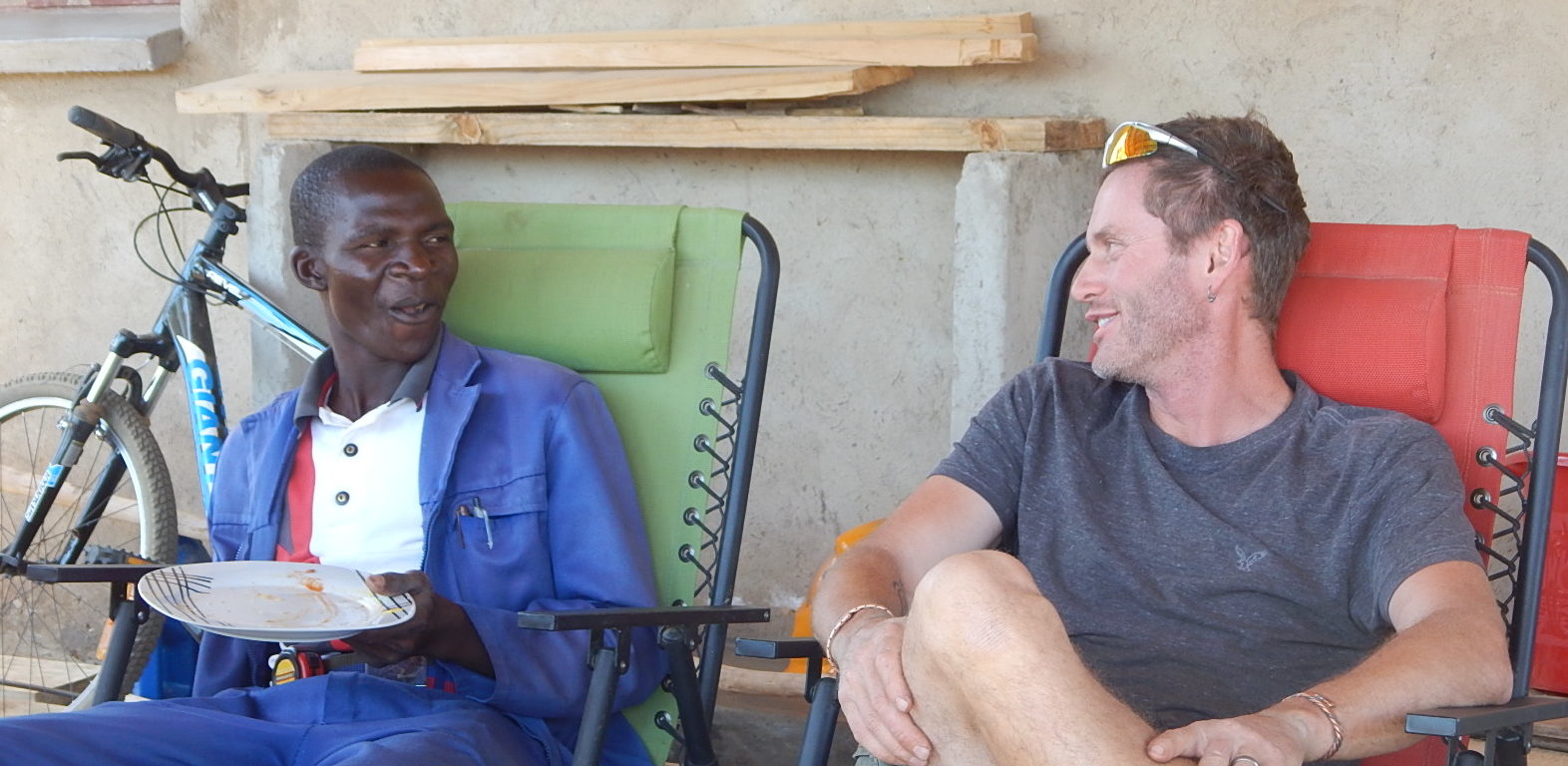
There are usually one or two men looking for me to help them with a problem or looking for instructions for the day. Every day I hear “Mr Jeff, I have a problem” over and over. I don’t mind usually. It’s part of being a murungu in Africa, but I love to work through problems with the men, rather than always for them. Sometimes I get asked to lend someone money, because the assumption is that I have a lot of money, being a white foreigner. If you do lend money you will get asked repeatedly by the same person and others because that first person has told others. Carole and I talk about whether to lend money or not, and make a decision.
The building crew is usually split up into a couple groups and I go and check out progress and see what’s going on. We have a lot happening at Eden. Right now we are constructing a new school building, which is the biggest project the crew has ever done. Before we started I had the men come to a meeting where I showed them the blueprints and talked about the importance of what they were going to be doing and that it was the biggest project yet. I heard from Guveya afterwards that the men really appreciated that I took the time to do that because it made them feel part of the team and nobody had ever done anything like that before. I wanted to inspire them and take ownership of their work and the project.
Lameck Guveya is the building foreman and is really taking his position seriously. He went to school to be a bricklayer and has just passed his exams to get his building license. Guveya is younger than some of the men on the crew, which can be awkward in Shona culture. Shona people have a respect culture that governs how they interact. Elders are shown respect, regardless of who they may be as a person. For example, if you meet an older person on the road you clap your hands quietly in front of your chest and say hello. Younger people do not tell their elders what to do, but on the jobsite it works well, Guveya still works within his culture and because of his knowledge and position all the men show respect and obey his instructions. I’ve been working closely with him, teaching him how to be a good foreman and how to work efficiently and get the men to have input and try to resolve problems on their own. This is something they aren’t used to.
I meet with Guveya every Monday morning to talk about the progress of the previous week, the plan for the coming week and how the crew is doing. We talk about what it means to be a foreman and how to work with the crew. After the work talk we get into our personal lives, how we’re really doing. This is one of my weekly highlights. Guveya and I have become great friends. We talk about our struggles and pray for each other. He fasts and prays for my family and our immigration situation and asks his church members to do likewise. I meet with Wilfred Mashayamombe, the thatching crew foreman, on Tuesdays and do the same with him. He’s another one of my good friends at Eden.